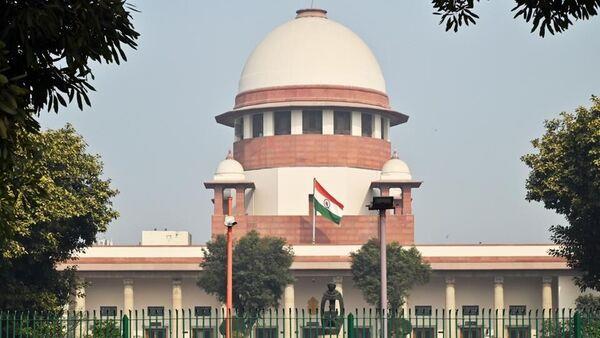
UP Govt 'Shocked' Over Halal Certification, Asks SC 'Why Should Non-Believers Pay More'
Mehta said he was“shocked” to see products other than meat certified as halal - attesting that the products meet the requirements of Islamic law.
Also Read | What are halal-certified products and what's the controversy around it?“So far as halal meat is concerned, nobody can have any objection. But your lordships would be shocked, as I was shocked, that even cement and iron bars used are to be halal certified,” Mehta submitted before a bench of Justices BR Gavai and Augustine George Masih, news agency PTI reported.
“Even 'atta' (wheat flour) and 'besan' (gram flour) have to be halal-certified. How can 'besan' be halal or non-halal?” Mehta was quoted as asking.
Also Read | Halal food cart worker grabs pigeon from street, netizens fumeSolicitor General Tushar Mehta made the submissions before the Supreme Court on Monday. The submission was made when the court heard the pleas challenging a notification prohibiting the manufacturing, storage, sale and distribution of food products with halal certification within Uttar Pradesh, except for items produced for export.
Mehta reportedly said the halal-certifying agencies were charging, and the total amount collected in the process might be a few lakh crore.
Meanwhile, the counsel appearing for the petitioners said the Centre's policy says it was a matter of lifestyle.“All this is voluntary. Nobody is forcing anyone,” the petitioner's counsel said.
Solicitor General Tushar Mehta then referred to“non-believers”, who did not consume halal-certified products and asked why they should be made to pay a higher price only because some people wanted halal-certified products.
Halal certification: What's next in the case?The Centre had filed an affidavit in the matter, the Supreme Court bench was informed.
The Supreme Court granted four weeks to the petitioners to file a rejoinder and said the matter would be heard in the week commencing March 24.
Also Read | Air India limits halal meals to select routes as part of its merger with Vistara What is Halal and Halal certification?The Food Safety and Drug Administration, Uttar Pradesh , issued a notification on November 18, 2023, imposing a statewide ban on the“production, storing, distribution and sale of halal certified edible items”
The notification was issued under the provision of the Food Safety and Standards Act, 2006.
Also Read | Kangana Ranaut questions Sonu Sood's stand on UP Kanwar Yatra rowHalal is an Arabic word that loosely translates to“permissible” in English. The Food and Agriculture Organization (FAO) of the United Nations defines Halal Food as that which is permitted under Islamic Law.
A halal certification is a guarantee that the food is prepared, adhering to Islamic law, and is unadulterated.
(With inputs from PTI) Legal Disclaimer:
MENAFN provides the
information “as is” without warranty of any kind. We do not accept
any responsibility or liability for the accuracy, content, images,
videos, licenses, completeness, legality, or reliability of the information
contained in this article. If you have any complaints or copyright
issues related to this article, kindly contact the provider above.















Comments
No comment